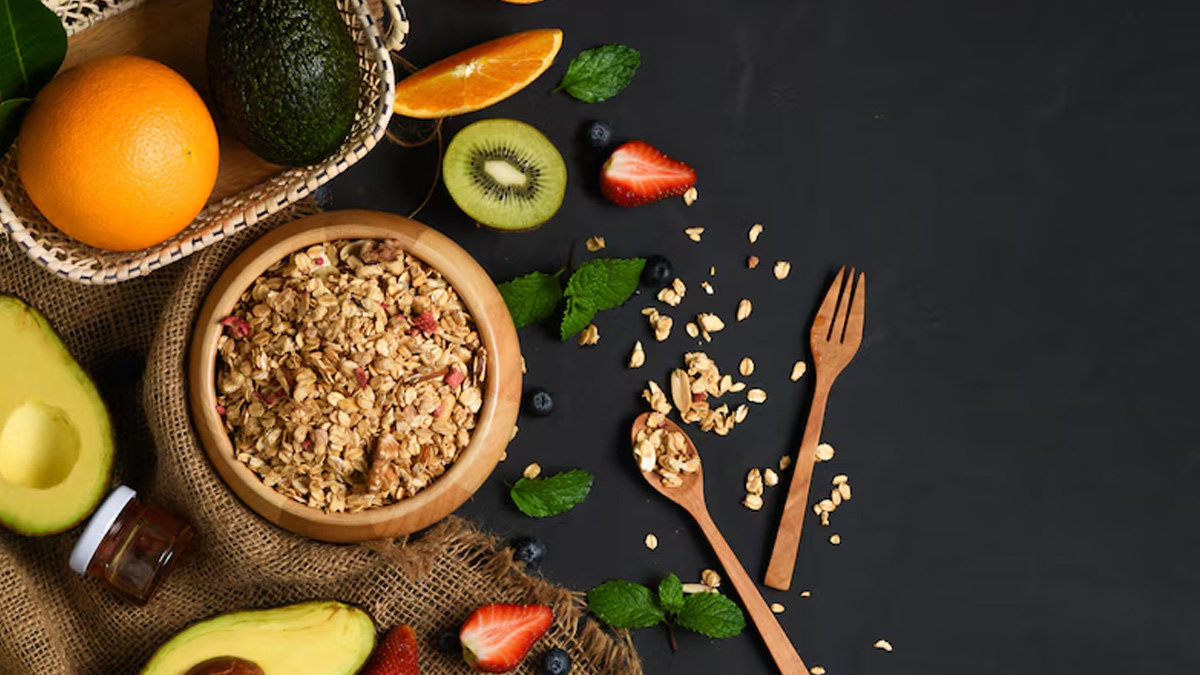Rooting To Lose Weight In 2025? These 5 New Year Resolutions Can Fix Your Diet And Nutrition

The arrival of a new year often sparks a commitment to better health, with weight loss being a priority for many. If you’re looking to make 2025 the year of sustainable weight loss, the secret lies in refining your nutrition habits.
This isn’t about cutting corners or surviving on salads alone; it’s about smart, informed choices that are easy to follow and even easier to maintain. From embracing whole foods to mastering portion control, these five nutrition resolutions will not only help you lose weight but also transform your relationship with food. Adopting specific nutritional strategies can make this goal achievable while fostering a sustainable and healthy lifestyle. Below are five practical resolutions, backed by science, to guide your weight-loss journey in 2025.
1. Prioritise Whole Foods Over Processed Alternatives
One of the most impactful changes you can make is replacing processed foods with whole, nutrient-dense options. Processed foods are often laden with added sugars, unhealthy fats, and empty calories that contribute to weight gain. A study published in Cell Metabolism (2019) found that participants consuming ultra-processed foods consumed about 500 more calories daily compared to those eating unprocessed foods, leading to weight gain.
By including fresh fruits, vegetables, lean proteins, whole grains, and healthy fats in your meals, you can create a balanced diet that promotes weight loss. Whole foods not only help manage calorie intake but also provide essential nutrients and keep you fuller for longer.
2. Control Portion Sizes

Overeating, even healthy foods, can hinder weight loss progress. Make 2025 the year you focus on mindful eating and portion control. The concept of portion control is supported by a study in the Journal of the Academy of Nutrition and Dietetics (2014), which revealed that reducing portion sizes led to significant weight loss over time.
Use smaller plates, measure portions where possible, and listen to your body’s hunger cues. Eating slowly and savouring your food can prevent overeating, as it allows your brain enough time to register fullness.
Also read: Is Plant-Based Meat A Sustainable and Nutritional Alternative or a Processed Food Pitfall? Expert Weighs In
3. Stay Hydrated with Water

Proper hydration is often overlooked but plays a crucial role in weight management. Replace sugary drinks like sodas and packaged juices with water to cut down on unnecessary calories. Research published in Obesity (2016) showed that increasing water intake was associated with significant weight loss and improved body composition.
Make it a resolution to drink at least eight glasses of water daily. For added flavour, infuse your water with slices of lemon, cucumber, or mint. Starting your meals with a glass of water can also help you eat less by promoting a feeling of fullness.
4. Increase Fibre Intake
Fibre-rich foods are your allies in the battle against weight gain. They improve digestion, enhance satiety, and reduce overall calorie intake. Foods like oats, lentils, beans, and vegetables are excellent sources of dietary fibre.
A study in Annals of Internal Medicine (2015) highlighted that simply increasing fibre intake without making other dietary changes resulted in weight loss for overweight individuals. Aim to consume at least 25-30 grams of fibre daily to support your weight-loss goals while improving overall gut health.

Also read: Boost Your Fitness with This 1,500-Calorie High-Protein Vegetarian Meal Plan, Shared by Fitness Coach
5. Adopt an 80/20 Approach
Strict diets can feel restrictive and unsustainable. Instead, resolve to follow the 80/20 rule, where 80% of your food intake comes from healthy, whole foods, and 20% allows for indulgences. This approach can help you maintain a healthy balance without feeling deprived.
By allowing yourself occasional treats, you reduce the likelihood of binge-eating episodes and create a positive relationship with food. Pair this with meal planning to ensure you have access to nutritious options throughout the week, minimising the temptation to rely on less healthy choices.
Conclusion
Setting realistic and specific resolutions tailored to your nutritional needs can transform your weight-loss journey into a long-term success story. Remember, small and consistent changes often yield the most sustainable results.
Start your year with these five resolutions and support them with regular physical activity, adequate sleep, and stress management. Combined, these efforts will not only help you shed excess weight but also improve your overall well-being, setting the tone for a healthier and happier 2025.
link







